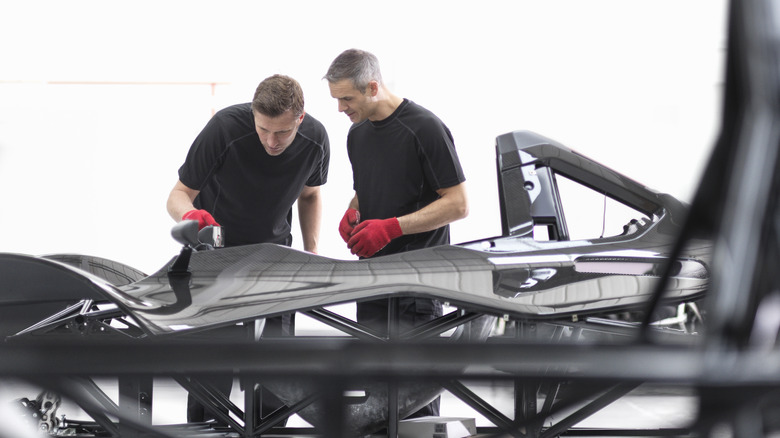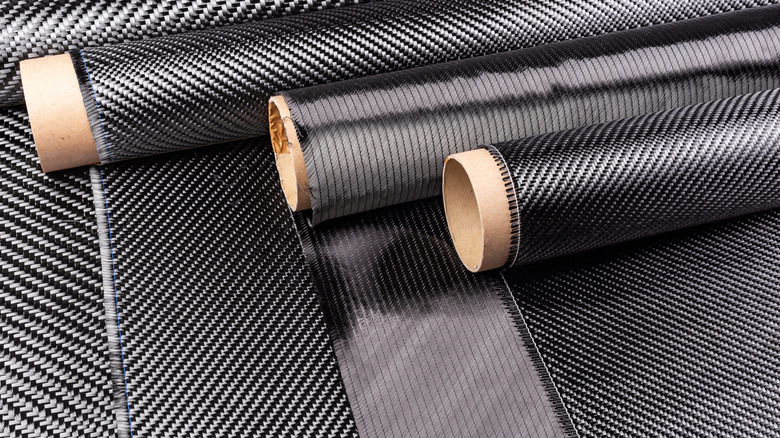The lightness and strength of carbon fiber have made it a near-ubiquitous means of reducing the weight of new cars, especially heavier, battery-laden electric vehicles. However, the European Union wants to classify carbon fiber as a “hazardous material.” An amendment to the EU’s End of Life Vehicles Directive proposed last week would take effect in 2029. While the European Parliament will likely carve out exceptions, it would reduce the amount of carbon fiber used, so say goodbye to carbon-fiber-clad interiors on performance cars.
The European Union’s issue with carbon fiber stems from the potential dangers of its disposal, Motor1 reports. The material consists of micrometer-thin carbon filaments bonded together with resin. When carbon fiber is thrown away in a junkyard, it’ll start to degrade. The filaments will erode and become conductive airborne dust that could cause short circuits if it gets caught in machinery. While not as bad as asbestos, a very low bar, it can be painful if carbon fiber dust comes in contact with your skin or you breathe it in.
Japan would suffer the most with an EU carbon fiber ban
The potential EU ban has raised a significant concern for Japanese carbon-fiber producers as they account for over half the world’s market share, according to Nikkei Asia. Toray Industries, one of the companies impacted, has 50% of its automotive carbon fiber sales in Europe. A Toray representative said, “This is not an issue for an individual company, and we need to coordinate with industry groups of fiber and automobiles to deal with this.”
Lead, cadmium, mercury, and hexavalent chromium are all already on the EU’s hazardous material list, but companies are still using them in manufacturing. Carbon fiber would face different difficulties if used on an exceptional basis. The material’s design benefits are best utilized if it replaces significant parts. For example, European aviation giant Airbus is exploring methods of replacing aluminum structural components with composites on its next-generation planes. Companies want to reap the weight benefits, and a less-harmful alternative is not readily available.



